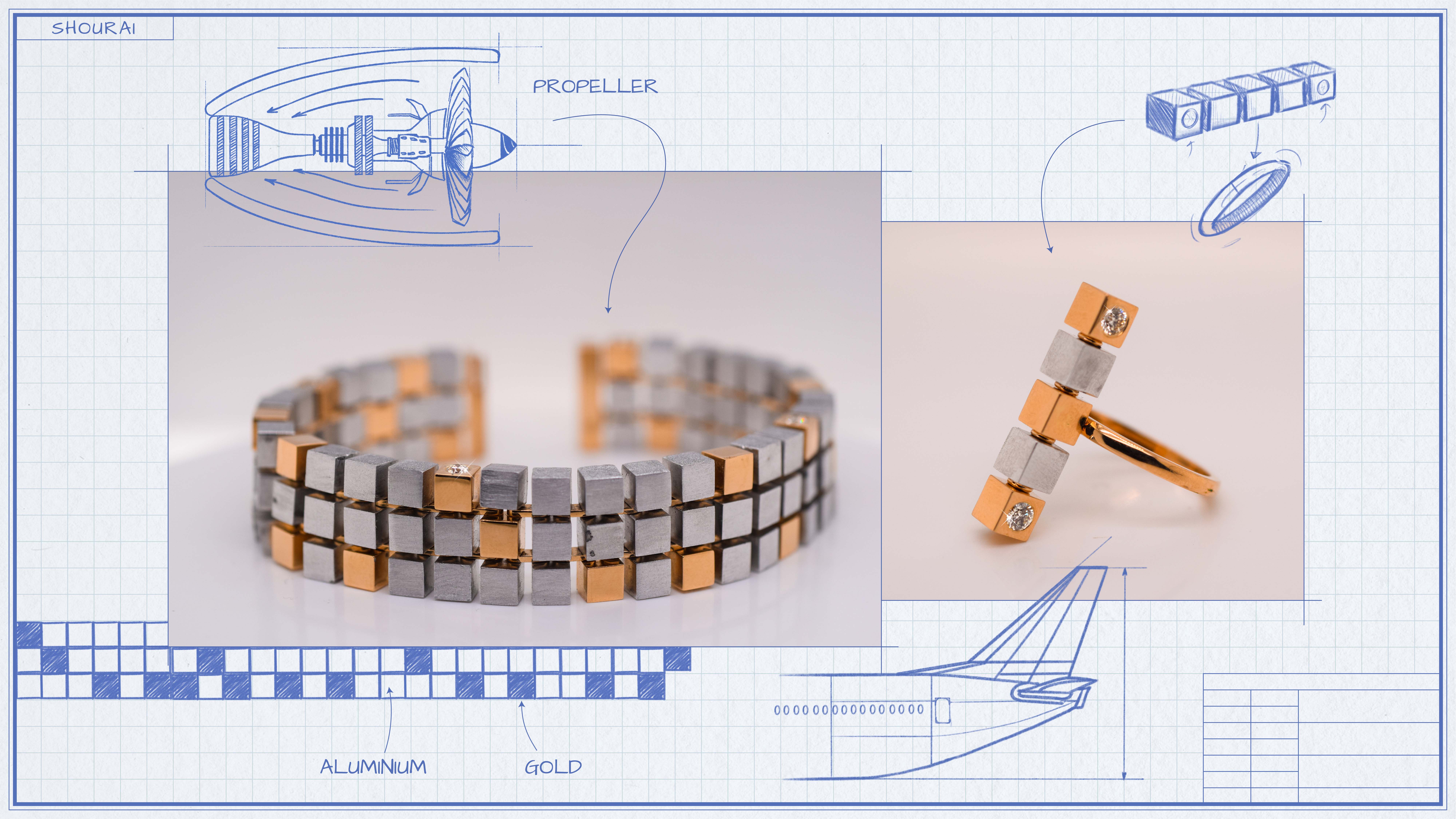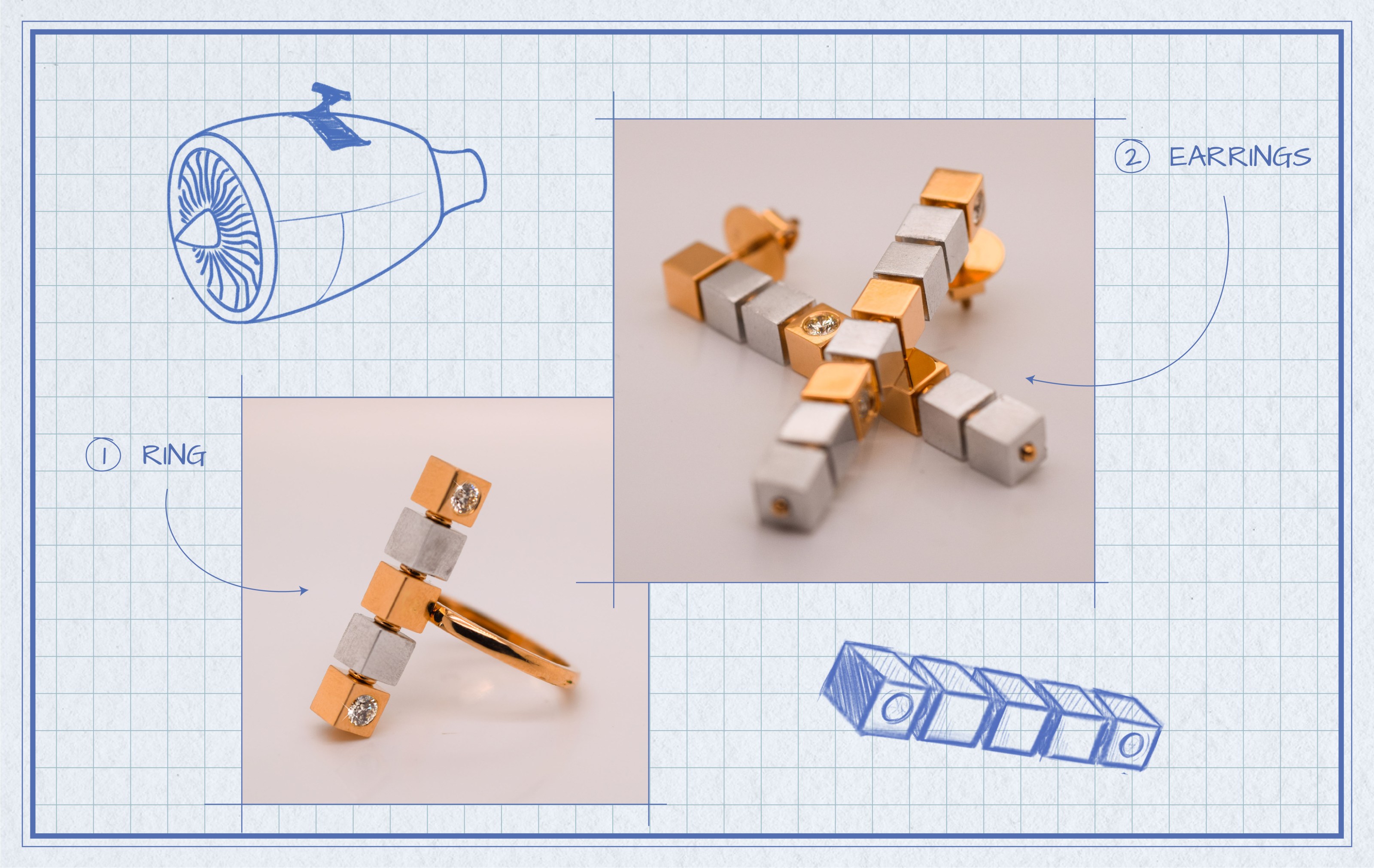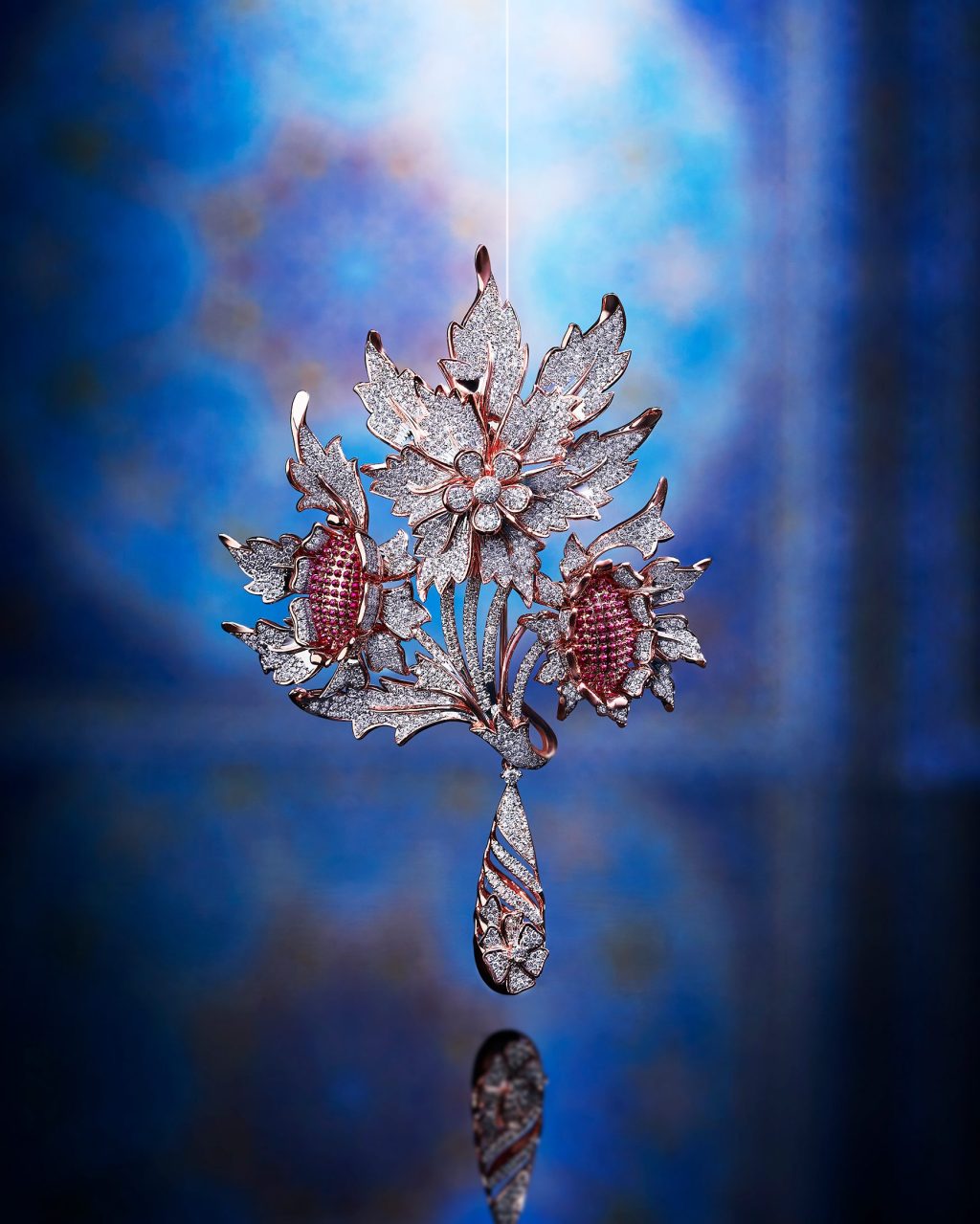Moksh Is Turning Airplane Scraps Into Sustainable Luxury Jewels
The Mumbai jeweller is adding gold and natural diamonds to upcycle aluminium parts from abandoned airplanes.

Pebbles, wood, fabric, leather – all have found their way into jewellery. So, Milan Choksi, founder of jewellery brand Moksh, and Satyajit Vetoskar founder of sustainable brand Bandit, pondered what they could do differently. Inspired ideas began to spring up as the creative director, Choksi, brainstormed with long-time friend, architect and industrial designer, Vetoskar. Their goal was to explore sustainability, recycling and move beyond the norm.
It all started over a birthday dinner, where Vetoskar bumped into an old friend. Luckily for him, the friend deals with aircrafts. Many conversations later, Vetoskar learned about the airplane junkyard. He set out to scour the junkyard on the outskirts of Agra, a city in northern India. It was anything but a joy ride. “It took many stops and taxi rides from Delhi to locate this gem and an equal amount of effort to convince the owner of their interest. “He found it hard to accept why we are in love with his place!” says Vetoskar, recounting the journey. He discovered heaps of aluminium: scrappy parts of abandoned, run down airplanes.

Recycling and Repurposing
The aim with Shourai (meaning ‘The Future’ in Japanese) is a “forever endeavour to move beyond,” while drawing on minimalism and geometry for the aesthetics. Shourai started off as an experiment, and somewhere, mid-way, Choksi realised that it could be so much more. The idea of reclaiming and upcycling is at the core of the entire process. Once the materials were identified, the idea was to keep not just the design aesthetics simple but also retain the simplicity of linkages. “It finally boiled down to sketching and detailing and more sketching, till it all fell together.” Figuring out the mechanism and the assembly of the elements required the team to think outside the box.
“Luxury is anything that is thoughtfully crafted; the process artful and slow – just like a natural diamond.“
Although aluminium is not a material new to the jewellery world, repurposing it from airplanes makes Shourai distinctive. What prompted Moksh to embark on this route? “Excessive production leads to excessive consumption – and, in turn, depletes our resources with over commercialization. Pairing airplane waste with natural diamonds, therefore, becomes a logical, sustainable and environmentally friendly choice,” says Choksi. Reclamation is very much possible, he observes. Gold dust, bits and specks retrieved from the workbenches and ‘waste’ from jewellery production at Moksh have been recycled, and diamonds from unsold pieces given a new lease of life. The brilliant cuts used in the collection merely as an accent, and flush set on the side of a few gold cubes, ensures it doesn’t detract from the aesthetic. “The round diamonds, placed randomly, breaks the monotony of metal and cube shapes – and adds sparkle.”
The gold is imbued with a glossy finish, while the aluminium is given a brushed and rougher finish to achieve a stark contrast. In its current avatar, the sleek capsule line comprises bracelet, necklace, rings, earrings, cufflinks and pendants – and makes for a great sustainable jewellery choice for eco-minded wearers. Shourai isn’t made for a specific gender – some pieces, however, mirror a more gender-neutral form than others, points out Vetoskar.

Natural Diamonds
“I find the greatest comfort in working with natural diamonds and gemstones. Luxury, for us at Moksh, is anything that is thoughtfully crafted; the process artful and slow. Just like a natural diamond. My family has been long associated with the business on various levels and I am deeply aware of the good work done by the diamond industry over the years: empowering communities around the mines, as well as bettering the lives of families of diamond cutters and all others within the ecosystem,” adds Choksi.
“Reclaimed aluminium from old aircrafts have been transformed into precisely machined cubes and accented with natural diamonds.”
Besides aluminium, both Moksh and Bandit are determined to explore other waste materials that can be incorporated into the jewellery design. The possibilities, they believe, are endless. “The overarching vision is to have fun, and bring all the influences in our lives into the jewellery we make. Jewellery, unlike any other possession, is physically and spiritually closest to the wearer. We just want to make it all the more special.” This, adds Vetoskar, is the start of a new beginning, to create sustainable designs in jewellery. “New designs, new materials and a new future.”

With eco-friendly, sustainable design being of paramount importance to customers – including millennials – Moksh, alongside like-minded partner Bandit, is affecting meaningful changes in diamond jewellery with Shourai.
All Images: Shourai
